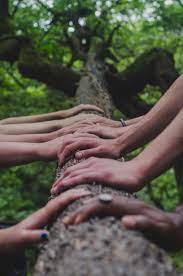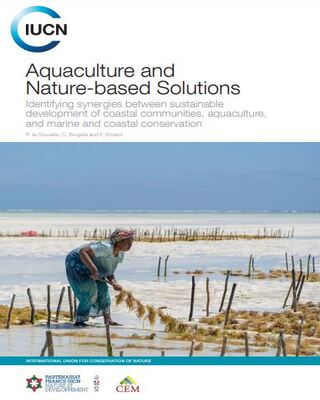Reports
Support to traditional healers for strengthening and capacity building
2017
Author(s): Bio-Resources Development Centre
This study provides profile of traditional healers in Meghalaya state. It also identifies constraints and problems of traditional healers.

Embedding indigenous knowledge in the conservation and restoration of landscapes
2023
Author(s): World Economic Forum
This report puts forward a set of principles and practices to inform how investors should think and what investors should do to engage Indigenous peoples and their knowledge in conservation and restoration of landscapes.

State of the World’s Indigenous Peoples, vol 5: Rights to Lands, Territories and Resources
2023
Author(s): United Nations
This publication offers a wide-ranging perspective on indigenous peoples’ rights to lands, territories and resources, analysing legislation and agreements at the national and international levels as well as customary law.
The Use of Climate-Related Indigenous Knowledge Systems to Support Anticipatory Action in Zimbabwe
2022
Author(s): World Food Programme
This study includes an overview of indigenous knowledge system indicators for climate forecasting and key recommendations on using climate-related indigenous knowledge services to support anticipatory action in Zimbabwe.
Opportunity assessment to strengthen collective land tenure rights in FCPF countries
2021
Author(s): World Bank
Communal land and forest tenure rights for Indigenous Peoples and local communities (IPLCs) is critical for the success of emission reduction program (ERP) implementation. This report discusses core findings about the nature and range of emergent opportunities associated with efforts to advance, strengthen, and leverage rights and presents the main opportunities in six selected countries.
Empowering Indigenous Women to Integrate Traditional Knowledge and Practices in Climate Action
2021
Author(s): The Climate Investment Funds (CIF)
The present study contributes to filling a knowledge gap on gender dimensions of TKT, particularly with understanding IPLC women’s TKT and barriers and enabling factors to integrate their TKT in conventional climate solutions.
Protect and Promote Your Culture: A Practical Guide to Intellectual Property for Indigenous Peoples and Local Communities
2015
Author(s): World Intellectual Property Organization (WIPO)
This guide aims to help indigenous peoples and local communities better understand the intellectual property system and make informed decisions about when and how to use intellectual property tools to protect and promote their traditional knowledge and traditional cultural expressions.
Mountain Women of the World – Challenges, Resilience and Collective Power
2022
Author(s): Food and Agriculture Organization of the United Nations
This publication highlights the stories and voices of mountain women, with a focus on rural areas and mountain tourism, and outlines a path forward to promote their empowerment and help them to realize their potential as agents of sustainable mountain development. It includes on-the-ground interviews with mountain women in eight countries (Argentina, Bolivia, Chile, Italy, Kenya, Kyrgyzstan, Nepal and the United Republic of Tanzania) and the results of a global survey.

Aquaculture and nature-based solutions: identifying synergies between sustainable development of coastal communities, aquaculture, and marine and coastal conservation
2022
Author(s): Gouvello R, Brugere C, Simard F
The present report examines the emerging concept of Nature-based Solutions (NbS) and the IUCN Global Standard (IUCN, 2020a) when applied to social-ecological systems that include aquaculture production.
Indigenous Peoples’ Food Systems: Insights on Sustainability and Resilience from the Front Line of Climate Change
2021
Author(s): Food and Agriculture Organization of the United Nations
This publication provides an overview of the common and unique sustainability elements of Indigenous Peoples' food systems, in terms of natural resource management, access to the market, diet diversity, indigenous peoples’ governance systems, and links to traditional knowledge and indigenous languages.



